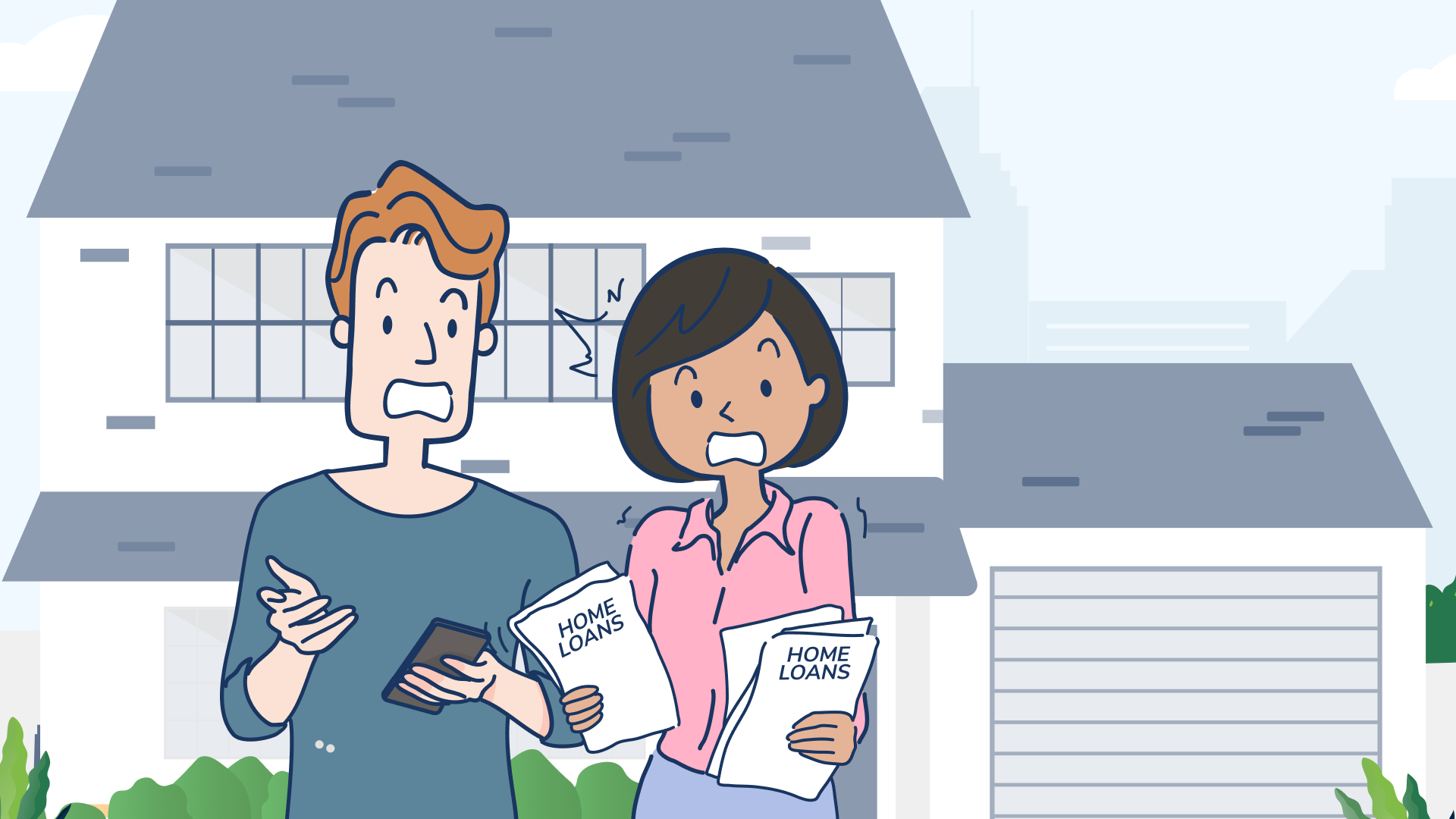Time to read : 4 Minutes
Stressed about your mortgage? You’re not alone. In one of our recent surveys, a massive 33% of mortgage holders named this expense as their number one financial stress.
But then that’s probably not news to you.
So rather than lecture you about what you probably already know, here’s some practical actions homeowners may find useful for the here and now to cut their costs.
Remember, these are only general suggestions and we suggest speaking to a broker or financial professional before making any big decisions.
What not to do:
Showing easy solutions to cut your monthly mortgage spend is, well, easy. We’ve seen a lot of the following pieces of advice dished out below:
1. Move to an interest only mortgage:
Why it’s not a great idea:
You’re just throwing money at your lender and not actually paying off your mortgage.
You’ll end up paying more for longer.
2. Extending the length of your home loan period:
Why it’s not a great idea:
You’ll be paying more interest over a longer period of time.
Your lender may get a little twitchy if your mortgage is extending too far into your retirement age.
The above movements are really only useful as short term measures. My colleague, mortgage broker Sophie Matthews, says only use them as a last resort and chat to your broker or lender before you go ahead.
Here are Sophie’s real strategies to help manage the cost of your mortgage:
1. Switch to fortnightly repayments:
How does this help?
If you’re paid on a fortnightly cycle, this can make your household cash flow a lot easier. Nobody likes stressing over the final few days before pay day due to one big bill.
Fortnightly payments also mean you pay down your principal mortgage faster.
Given the interest on your loan is calculated on the amount you have left to repay, it also means you end up paying less over the life of your loan.
2. Shop around for a home valuation from lenders:
How does this help?
A higher home valuation could mean a lower loan-to-value ratio (LVR). And a lower LVR may mean that lenders offer you a lower interest rate.
This is a tactic that good brokers know about (doing it yourself takes time and money). There’s a huge amount of variance here, but ultimately you’re using your expert broker’s knowledge of the market to get the best possible deal.
Sophie told me that she’ll have a pretty good idea down to the postcode level of which lenders are most likely to value your property higher or lower.
3. Bundle your debts
How does this help?
Putting your car loan, credit card balances and other major debts into your home loan when you refinance can really reduce the amount of interest you pay.
Yes, 6% and above mortgage rates aren’t pleasant - but they’re a lot lower than the 15% some people pay on their car loan or the 19.82% average interest rate on credit cards.
Even if you’re only able to drop your mortgage rate by 0.1%, adding in other debts could shave anywhere from a few hundred to a few thousand off your monthly bills (although you’ll need to factor in any break clause charges from some debtors like car loans).
And if your financial situation is really bad…
speak to your lender as soon as you can. They really don’t want to repossess your property and will have strategies for struggling customers.
consider some of the last resort tactics in the “what not to do” section above. They’re there for short term emergencies, and it’s okay to go there provided you have a solid strategy for getting out again.
speak to a financial counsellor. They’re free and come with an independent viewpoint.
The bottom line:
We’re all feeling the pinch when it comes to our mortgage repayments. But some solutions are only a short term band aid.
Speak to an expert broker like Sophie, assess your options and always keep in mind that paying down your principal interest is the main goal. This way, you should pay your loan off more quickly and get those monthly repayments down over time.
